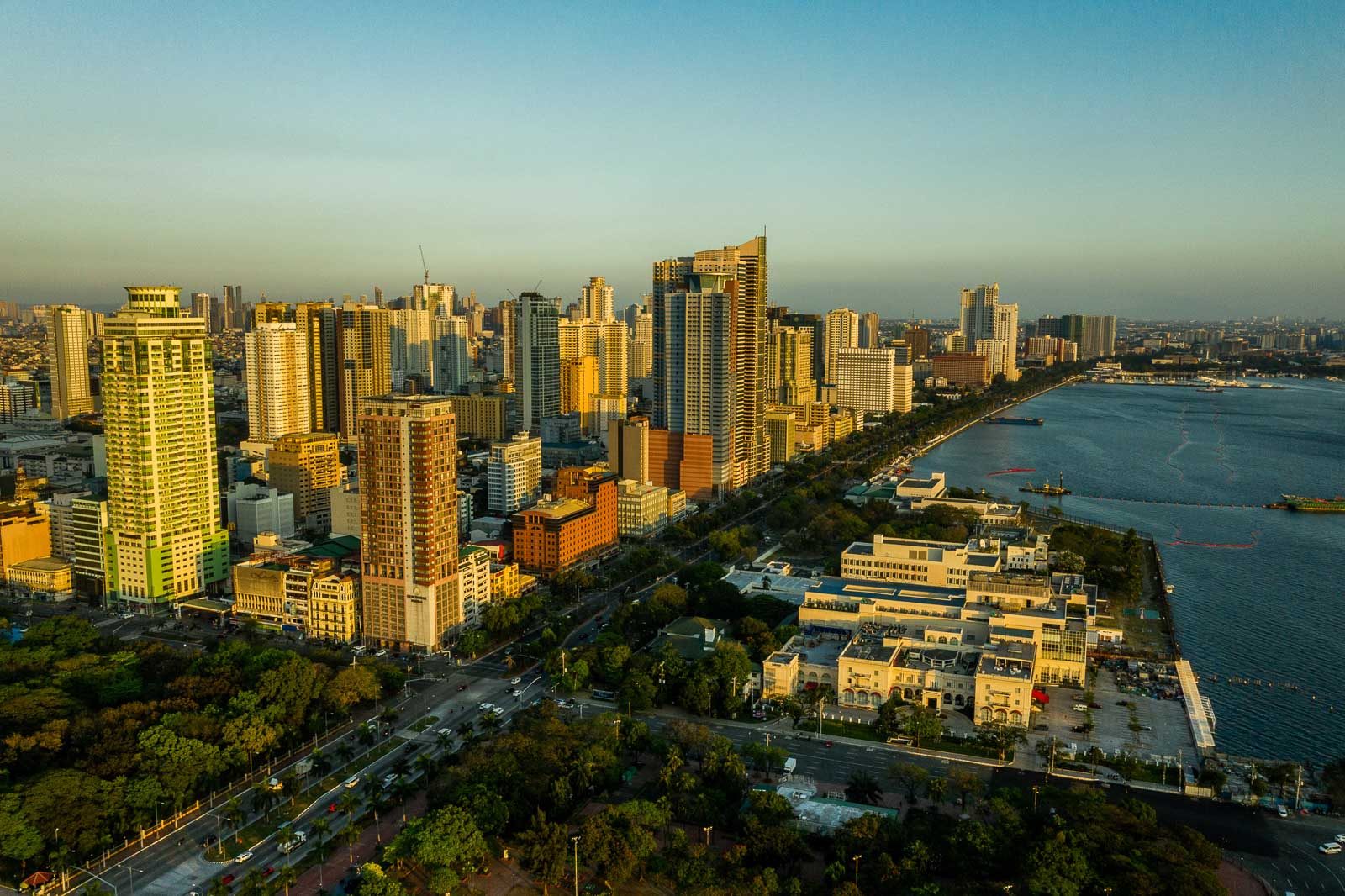SUMMARY
This is AI generated summarization, which may have errors. For context, always refer to the full article.

MANILA, Philippines – The mayors of the 16 cities and one municipality that comprise Metro Manila decided not to recommend whether to lift or extend the enhanced community quarantine, or lockdown, when it lapses on May 15.
Instead, they agreed to present 3 scenarios to the national government’s coronavirus policy task force, and to abide unanimously by whichever option the task force chooses, said Metro Manila Development Authority general manager Jojo Garcia on Saturday evening, May 9.
Garcia announced the plan of the Metro Manila Council (MMC), which includes the 17 mayors, after their meeting that started past noon on Saturday.
The 3 scenarios the MMC will present to the Inter-Agency Task Force on Emerging Infectious Diseases are:
- Extending the enhanced community quarantine (ECG) by a maximum of two weeks
- Transitioning into general community quarantine (GCQ)
- Transitioning into “modified” GCQ allowing the mayors to impose lockdowns on case-heavy barangays
If the task force decides to extend the ECQ, it should only be for another two weeks at most, the Metro Manila mayors said, citing the strain on their local economies, according to Garcia.
The GCQ is a more relaxed form of community quarantine. Areas deemed by the task force as at “low” or “moderate” risk of coronavirus transmissions are now under GCQ. In the GCQ, some public transportation is allowed, certain sectors may resume work, and “non-leisure” businesses can reopen, besides essential establishments. (READ: EXPLAINER: What happens under ‘general community quarantine’?)
Garcia said all the metro’s local governments are ready to enforce any of the 3 options they will present the task force, but they agreed they would all abide by just one of them. It would not work to have some parts of the capital region be in ECQ and others in GCQ, he added.
“Kailangan ng Metro Manila, isa lang ang galaw. Hindi puwedeng iba-iba per city. Kailangan, isa lang ang desisyon sa NCR (National Capital Region), and isa lang ang magiging guidelines natin. Kasi tandaan natin ‘yung connectivity ng cities natin eh,” Garcia said.
(In Metro Manila, there must be a single action. It cannot be different per city. There has to be a single decision for NCR, and only one set of guidelines. Because we have to remember the connectivity of our cities.)
Garcia noted that, for instance, many of the people who work in the Makati central business district reside not in Makati itself but in other cities in Metro Manila, or even outside it.
If some places remain in ECQ while others go on GCQ, it would not only make logistics difficult, but also heighten the risk of viral transmissions in vulnerable areas, Garcia said.
What is important to the mayors is to strike a balance between spurring economic activity and protecting public health. Although the ECQ is a better deterrent against transmission, its economic restrictions might prove too much for low income residents.
“Sabi nga nung ilang mayor, hindi ka nga nagkasakit, namatay ka naman sa gutom.” Garcia said. (As some of the mayors said, you may not have gotten sick, but then you ended up starving to death.)
On Friday, MMC head and Parañaque City Mayor Edwin Olivarez said some Metro Manila mayors were considering a 15-day extension of the ECQ.
Reports that some council members were pushing to extend the ECQ until June 15 were false, and must have been based on a misquote, Garcia said on Saturday.
Metro Manila has the highest concentration of COVID-19 cases in the country. On Saturday, the Department of Health said 84% of new confirmed cases were from the capital region – 123 out of 147 patients.
As of 4 pm on Saturday, the Philippines has recorded a total of 10,610 confirmed cases of COVID-19, with 704 deaths and 1,842 recoveries. – Rappler.com
Add a comment
How does this make you feel?
There are no comments yet. Add your comment to start the conversation.